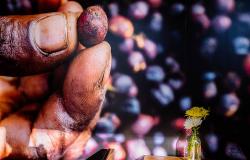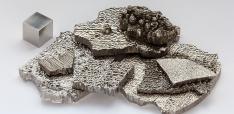The “Black Gold Grab” – Coffee & Land Grabbing

“No somos peces para vivir del mar. No somos aves para vivir del aire. Somos hombres para vivir de la tierra » [We are not fish to love from the sea. We are not birds to live from the air. We are men to live from the land.]
A slogan of Las Tunas Coffee Farmers’ Protesting Against their Eviction from their Land
The smell of coffee is in the air. It beckons you until the doors of your favourite coffee shop. The door opens. The flavour of indulgence spreads on your tongue and makes you ready for combat. You writhe through the masses of coffee aficionados – pivoting tray carriers and ricochets of coffee – until you see our goal: The counter. Already tangible, you get impeded by the staff who squeezes the menu into your ribs. You run your eyes over the menu. The decision - just too difficult to make - centrifuges you to your standardised hot beverage: A single-origin coffee. The barista slowly and carefully pours the hot water over the freshly ground coffee into your most favourite takeaway cup. The minutes seem like hours, and after having waited for an unbearable amount of time, you receive the with-love-made coffee. You take the first sip. Your mouth unclips. Your eyes widen. Your tongue reaches for the more than 1,000 taste varieties of flavours, and a taste of caramel stretches like a red carpet at the el Royal Hotel in Bandung over the surface of your tongue. Delicious! Yet, something is wrong. The coffee does not taste like the usual. You realise: The years of speciality coffee are gone.
Coffee aficionados like me have been worried sick about such a scenario. Facing poorer-tasting and higher-priced coffee? No, thanks! Though, areas, where coffee can be grown, are shrinking while coffee consumption has doubled in the last 35 years – increasing from 4.9bn kilos in 1980 to 9.5bn kilos in 2016 and outstripping production for the previous consecutive years –according to the International Coffee Organization (ICO). “In Ethiopia [the “birthplace of coffee”] and all over the world really, if we do nothing there will be less coffee, it will probably taste worse and will cost more,” Dr Aaron Davis, a coffee researcher at Kew stated. Therefore, I have highly anticipated seeing several discussions addressing the issue of coffee farming at the GLF 2018; encouraged not only by the ILC but also grassroots and farming organisations. Yet, I got disappointed.
Having the topic of land grabbing as a central theme of the GLF made me wonder why coffee was never addressed. Land grabs – defined as “land that was previously used by local communities is leased or sold to outside investors…” – have happened in a vast array of sectors over the past two decades but coffee has become an emerging driver for the eviction of people. I call such evictions “black gold grabbing” – referring to the famous, independent documentary film named “Black Gold” of 2006 in which Director Marc J. Francis observes the controversies in the world of coffee and global coffee trade.
One infamous black gold grab happened on August 18th, 2001, when 4000 Ugandans in Mubende were forced to leave their land to allow the establishment of a coffee plantation. The Ugandan army violently expelled over 400 local peasant families from the villages of Kitemba, Luwunga, Kijunga, and Kiryamakobe. The land was sold to the Kaweri Coffee Plantation Ltd. – a sub-company operating under the German company Neuman Kaffee Gruppe (NKG) – and converted more than six churches, a private clinic, and houses into one of Asia’s largest coffee farms. The expelled people have lost their homes and shelters and suffered under food and water shortages, unemployment, diseases, and no access to health care and education due to lack of money.
Consequently, it becomes essential to talk about coffee at the GLF. While organisations such as the ICO have addressed the topic several times, the ILC needs to play a better role in spreading awareness and disseminate the information on black gold grabs. A perfect opportunity for information sharing could have been the stand at the GLF Ideas Fair where high-quality Indonesian coffee coming from indigenous people was sold to conference participants. In addition, talks on land grabbing could have included coffee as a potential motivator. I believe this would have connected coffee drinking conference participants with the issue of land grabbing – making them realise that also their consumption is responsible for the increasing phenomenon of black gold grab.
During the GLF, I had the chance to shortly discuss the topic with one of ILC member. Though, the discussion quickly died off due to the insufficient general debate about the matter. Also, on the final day, during one of the last talk shows of the GLF, one panellist pointed out that Vietnam has recently experienced an increasing threat of black gold grabbing due to the expanding coffee market in Vietnam – addressing the rising foreign investment in coffee in Vietnam.
For now, I am going to enjoy the speciality coffee coming from Bali this morning. I will relish every drop of it as it runs down my throat because I know, and I am aware that one day the pleasant taste of coffee might be a story from the past. I am glad that land for farming coffee can still be found. Yet, buying and enjoying coffee includes our responsibility to ensure the farmers’ livelihoods and working conditions, as well as assuring that no person was evicted from land to grow coffee. So, let’s make sure that the ILC will address black gold grabbing as a more pressing issue in the future.
To read more from the team of GLI policy analysts at the GLF, please click here.
The student team comprises Jessica Burrows, Anwesha Chakraborty, Rebecca Claydon, Anna Fish, Bastian Harth, Calvin Kumala, Zuzana Majcova and Robyn Stewart. They are joined by Dr Charis Enns from the Department of Geography and Dr Philipp Horn from the Department of Urban Studies."
Image credit: Sonny Abesamis via Flickr (CC BY 2.0)



